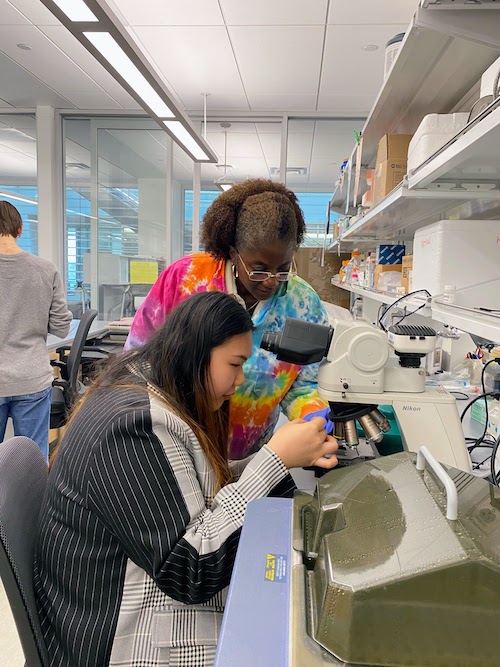
The study, published in BMC Biology, is the first to successfully edit genomes in Nile grass rats. As diurnal rodents, Nile grass rats have similar sleep/awake patterns to humans which could be advantageous in preclinical or translational research.
Currently, preclinical research relies heavily on laboratory mice, which are nocturnal rodents who are active at night and sleep during the day. With these different sleep patterns, diurnal and nocturnal mammals have evolved differently, including having a distinct wiring of neural circuits and gene-regulatory networks.
“The differences between diurnal and nocturnal mammals present a significant translational flaw when applying the research findings obtained from mice to humans. Numerous therapeutic agents such as neuroprotectants proven effective in mouse or rat models of cerebral ischemia have failed in human clinical stroke trials, with mounting evidence suggesting the nocturnal and diurnal differences causing such failures,” said Lily Yan, co-author of the study and professor in MSU’s Department of Psychology.

Because the differences between diurnal and nocturnal animals are complex, the researchers believe a diurnal model is essential to untangle the relationship between genes and behaviors that are relevant to human health and disease.
The method developed includes a super ovulation protocol that can yield nearly 30 eggs per female. They also developed protocols for in vitro — outside of the body — embryo culture and manipulation and in vivo — in the living body — gene targeting using GONAD, or Genome editing via Oviductal Nucleic Acids Delivery, methods.
The Nile grass rat colony is a unique resource available at MSU. Thanks to the joint efforts of the departments of Psychology and Integrative Biology and the Transgenic and Genome Editing Facility, a Nile grass rat colony was established on campus in 1993.
Research projects at MSU involving Nile grass rats have been continuously funded for more than 30 years. Animals from the MSU grass rat colony have been shared with over 20 research labs in the U.S., Canada, Belgium, China and Japan that study topics including circadian rhythms and sleep, mood and cognition, immune function, metabolic syndromes and evolutionary biology.
“We hope that Nile grass rats will eventually become an alternative mammalian model to investigate genes’ roles in any biological processes, particularly in which chronotype (diurnal vs. nocturnal) is a critical biological variable,” Yan said. “This study will be an essential first step towards the far-reaching goal.”
Co-authors on the research are Huirong Xie, program director of MSU Transgenic and Genome Editing Facility; Katrina Linning-Duffy and Jiaming Shi, who work in Yan’s Lab.
This story was originally published on MSUToday.
About the MSU Innovation Center:
The MSU Innovation Center is dedicated to fostering innovation, research commercialization, and entrepreneurial activities from the research and discovery happening across our campus every day. We act as the primary interface for researchers aiming to see their research applied to solving real-world problems and making the world a better place to live. We aim to empower faculty, researchers, and students within our community of scholars by providing them with the knowledge, skills, and opportunities to bring their discoveries to the forefront.
Through strategic collaborations with the private sector, we aim to amplify the impact of faculty research and drive economic growth while positively impacting society. We foster mutually beneficial, long-term relationships with the private sector through corporate-sponsored research collaborations, technology licensing discussions, and support for faculty entrepreneurs to support the establishment of startup companies.
Is your company interested in collaborating with MSU’s Psychology researchers? Click Here.

